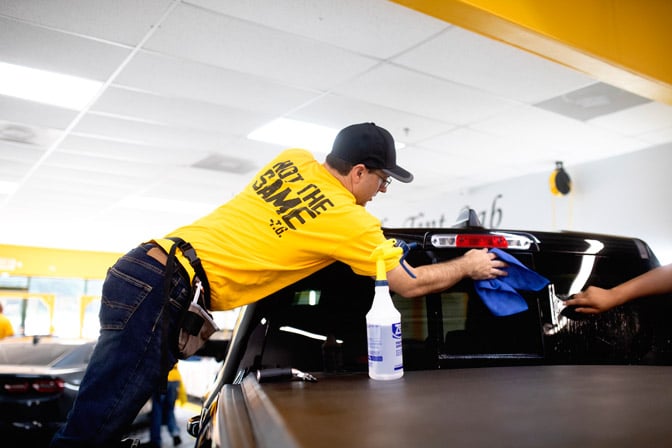No products in the cart.
Should You Tint Your Windows?
- Post published:September 1, 2021
- Post category:Window Tinting
So, you’re thinking about tinting your windows.
You may be looking at the windows on your car or in your home. However, when you conduct a quick Google search, it returns hundreds of results full of jargon and terminology that only leave you with more questions than answers.
Tinting your windows should be easy. And to help, here’s the information you need to have an informed conversation with your window tinter.
The Most Popular Types of Window Tint
Your window type will determine the film you’ll need.
- Ceramic film is ideal for vehicles when you need to block out heat and reduce glare. It also doesn’t fade over time and is highly durable.
- Dyed film uses a dye layer between the protective top coating and the adhesive layer. The result is a dark, matte style that is popular with many car owners.
- Heat control window film can block out solar heat in houses by up to 80%. It helps cut down your energy costs by reducing reliance on air conditioning or fans.
- Security window film protects your home from natural disasters and other potential threats. The glass will remain in place when debris or other objects smash into it instead of shattering into tiny pieces.

Common Window Tint Ratings
In addition to the types of window tint, there are also ratings you should consider. These are often presented as acronyms and represent performance metrics or specific attributes of the film.
- Visible Light Transmittance or VLT refers to the amount of visible light that passes through the glass. The general rule to remember is the lower the percentage, the darker the tint.
- Visible Light Reflectance or VLR represents how much visible light reflects off the film. As this number increases, the window glare reduces.
- Total Solar Energy Rejected or TSER measures the film’s ability to block UVA, UVB, visible light as well as infrared radiation. In other words, it’s how powerful the tint is.
- Total Solar Reflectance or TSR is the amount of heat and light the window film can absorb.
Want to Learn More About Window Tinting?
Understanding the types of window tint available, as well as the most common ratings, will help you choose the most suitable film for your needs. It’s good to ask questions. Just make sure you ask the right experts.
Tint Genius isn’t just a clever name. All our team members are certified and trained by The film manufacturer. We have more than 100 5-star Google reviews from satisfied customers. Call us today or use the chat button to ask a question or schedule a window tinting appointment.



